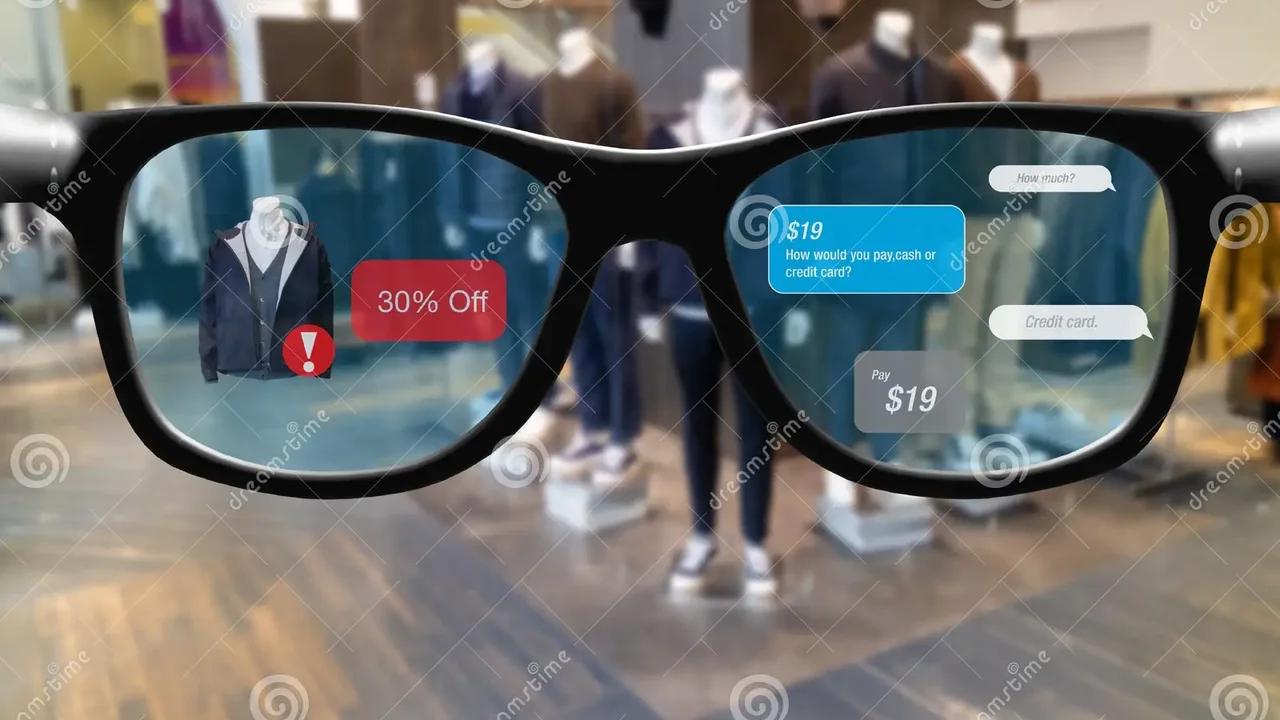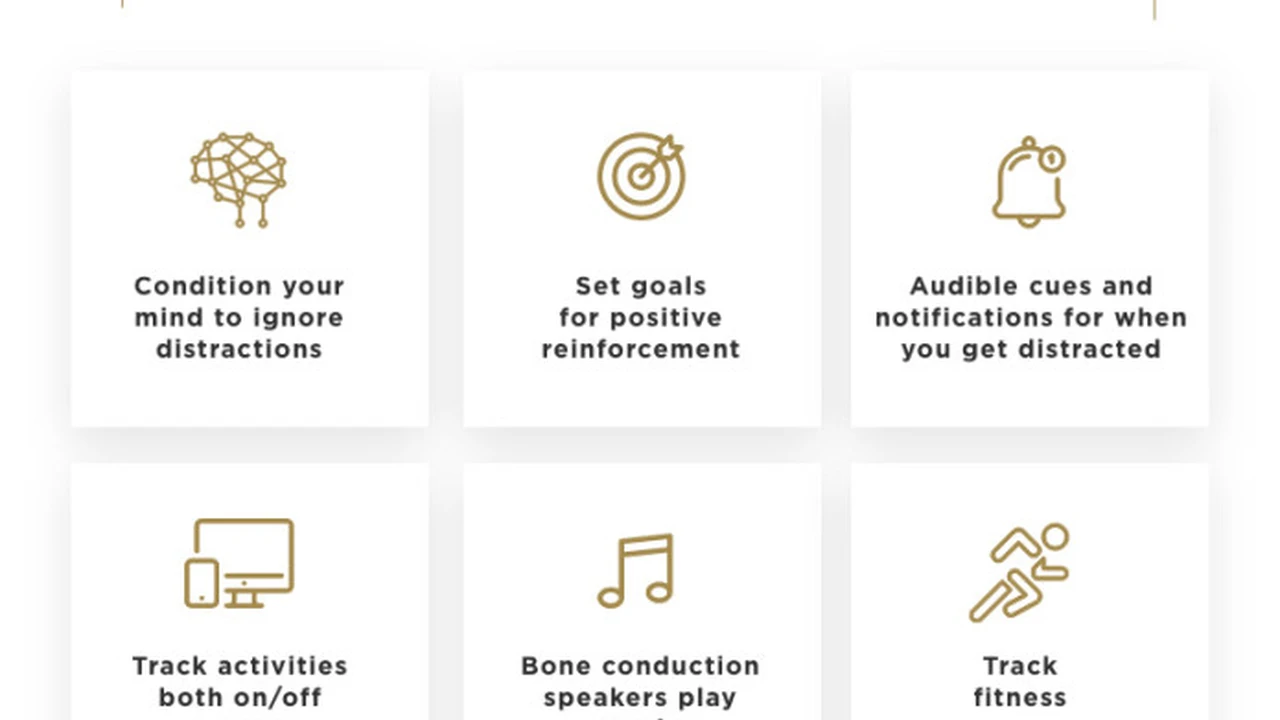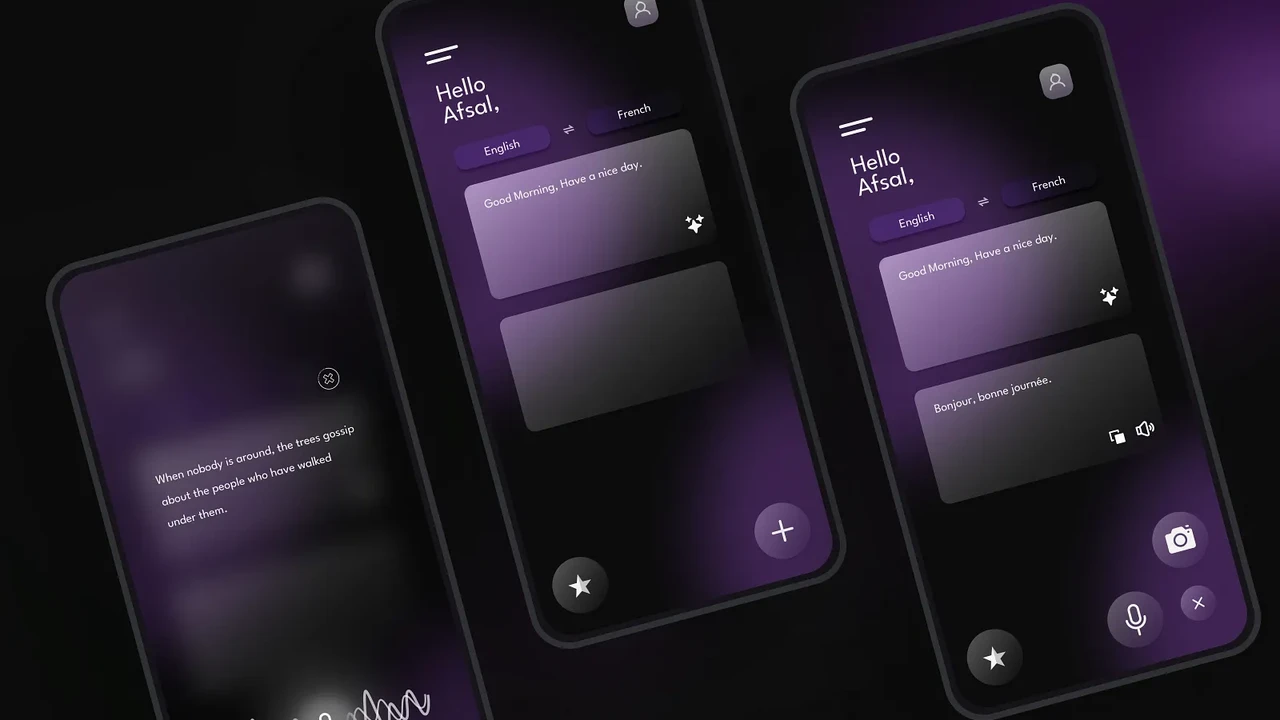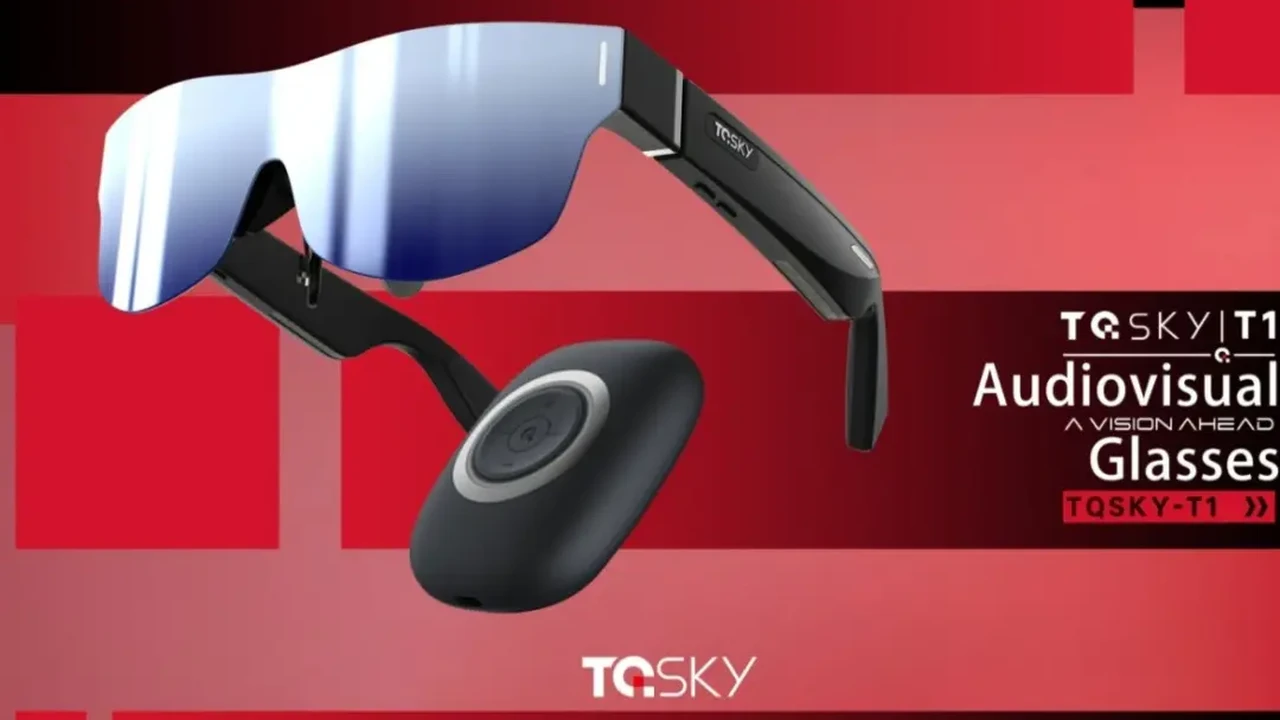Smart Glasses for Retail Enhancing Customer Experience
See how smart glasses are being used in retail to improve customer service and streamline operations.

Smart Glasses for Retail Enhancing Customer Experience
Hey there, ever walked into a store and wished for a more personalized, efficient, or even magical shopping experience? Well, smart glasses are quietly, but powerfully, making that a reality in the retail world. It's not just about looking cool; it's about transforming how customers interact with products and how staff deliver service. Let's dive into how these futuristic specs are shaking things up, what specific products are leading the charge, and what you can expect to see in your favorite shops soon.
Revolutionizing Retail Operations with Smart Glasses Technology
Think about it: retail is all about speed, accuracy, and making the customer happy. Smart glasses bring a whole new level of efficiency to these core areas. Imagine a sales associate instantly pulling up product information, checking inventory, or even getting real-time customer preferences just by looking at an item or a person. This isn't science fiction; it's happening now.
Enhanced Customer Service and Personalized Shopping Experiences
One of the biggest wins for smart glasses in retail is the ability to offer truly personalized service. A sales associate wearing smart glasses could, for example, scan a customer's loyalty card (with their permission, of course!) and instantly see their purchase history, preferred brands, and even their wish list. This allows for highly tailored recommendations, making the customer feel valued and understood. No more generic sales pitches! It's like having a super-powered personal shopper right there with you.
Streamlining Inventory Management and Stock Checks
Inventory management can be a real headache for retailers. Counting stock, locating items, and ensuring shelves are always full takes a lot of time and effort. Smart glasses can drastically cut down on this. Staff can use them to quickly scan barcodes, identify misplaced items, and even get visual cues on where new stock needs to go. This means less time in the back room and more time on the sales floor, helping customers. It also reduces errors, leading to happier customers who can always find what they're looking for.
Efficient Training and Onboarding for Retail Staff
Training new retail employees can be a lengthy process. Smart glasses offer an innovative solution. Imagine new hires receiving augmented reality overlays that guide them through tasks like setting up displays, operating the POS system, or even handling complex customer queries. This hands-on, visual learning can significantly speed up the onboarding process, getting new staff productive much faster. It also ensures consistency in training across all stores, which is a huge plus for large retail chains.
Remote Assistance and Expert Support for Retail Environments
Sometimes, a retail problem needs an expert. Whether it's a complex technical issue with a display or a tricky customer complaint, smart glasses can bridge the gap. A store associate can wear smart glasses and connect with a remote expert who can see exactly what the associate sees. The expert can then provide real-time instructions, highlight areas, or even share documents directly into the associate's field of view. This means faster problem resolution and less downtime, keeping the store running smoothly.
Leading Smart Glasses Products for Retail Applications
So, which smart glasses are actually being used in retail right now? While the consumer market for smart glasses is still developing, the enterprise space, especially retail, is seeing significant adoption. Here are a few key players and what they bring to the table:
Google Glass Enterprise Edition 2 for Retail Efficiency
Google Glass might have had a rocky start in the consumer world, but its Enterprise Edition 2 is a serious contender in retail. It's designed for hands-free work, allowing employees to access information, scan barcodes, and even record video for training or quality control. It's lightweight and comfortable for extended wear. Its primary use in retail often revolves around inventory management, order picking, and providing quick access to product details. The price point for enterprise solutions like this can vary, but typically starts in the range of $1,000 to $2,000 per unit, depending on volume and specific software integrations.
Use Cases for Google Glass Enterprise Edition 2 in Retail:
- Inventory Audits: Quickly scan items and update stock levels without needing a handheld scanner.
- Order Fulfillment: Hands-free navigation through warehouses or store aisles to pick online orders efficiently.
- Product Information Lookup: Sales associates can instantly pull up specs, reviews, and availability for any product a customer asks about.
- Visual Merchandising: Capture photos or videos of display setups for compliance checks or sharing best practices with other stores.
Vuzix Smart Glasses for Enhanced Retail Operations
Vuzix offers a range of smart glasses, like the M400 and M4000, that are rugged and built for demanding work environments, including retail. They boast powerful processors, excellent cameras, and clear displays. Vuzix glasses are often chosen for their robust build quality and their ability to integrate with existing enterprise systems. Their pricing is similar to Google Glass Enterprise Edition, often in the $1,500 to $2,500 range per unit.
Use Cases for Vuzix Smart Glasses in Retail:
- Remote Expert Assistance: A store manager can connect with a regional expert to troubleshoot a problem with a display or a new product setup.
- Receiving and Stocking: Hands-free scanning of incoming shipments and guided placement of products on shelves.
- Quality Control: Ensuring product displays meet brand standards by visually comparing them to digital guidelines.
- Customer Service Support: Accessing customer profiles or troubleshooting guides while interacting with shoppers.
Microsoft HoloLens 2 for Immersive Retail Experiences
While significantly more expensive (often starting around $3,500 per unit), the Microsoft HoloLens 2 offers a true mixed reality experience, which opens up even more immersive possibilities for retail. It's not just about displaying information; it's about interacting with 3D holograms in the real world. This is where the 'magic' really starts to happen for customer engagement.
Use Cases for Microsoft HoloLens 2 in Retail:
- Interactive Product Demos: Imagine a customer seeing a holographic representation of a piece of furniture in their living room before buying it, or a car's engine components floating in front of them.
- Virtual Try-On: While still nascent, HoloLens could enable customers to virtually 'try on' clothes or accessories with incredible realism.
- Store Layout Planning: Retail managers can visualize and plan store layouts in 3D before making physical changes.
- Employee Training with Holograms: Training staff on complex machinery or product assembly using interactive 3D models.
Epson Moverio Smart Glasses for Augmented Retail Displays
Epson's Moverio series, like the BT-300 or BT-40, are known for their transparent displays, making them ideal for augmented reality applications where the user still needs to see the real world clearly. They are generally more affordable than HoloLens, often in the $700 to $1,500 range, making them accessible for a wider range of retail applications.
Use Cases for Epson Moverio Smart Glasses in Retail:
- Augmented Product Information: Customers or staff can look at a product and see overlays of its features, reviews, or even how-to videos.
- Interactive Signage: Digital information appearing over physical signs, providing dynamic content.
- Guided Tours: In large stores or showrooms, customers could receive augmented reality directions to specific departments or products.
- Maintenance and Repair: Technicians can see digital schematics overlaid on physical equipment for easier repairs.
Comparing Smart Glasses for Retail Deployment
When choosing smart glasses for a retail environment, it's not a one-size-fits-all situation. Different products excel in different areas. Here's a quick comparison to help you understand the nuances:
Cost vs. Capability in Retail Smart Glasses
Generally, there's a direct correlation between cost and capability. More advanced mixed reality devices like the HoloLens 2 offer incredible immersive experiences but come with a higher price tag. Simpler smart glasses like Google Glass EE2 or Vuzix M-series are more focused on hands-free information access and remote assistance, making them more cost-effective for tasks like inventory or basic product lookup. Epson Moverio sits somewhere in the middle, offering good AR capabilities at a more accessible price.
Ease of Integration with Existing Retail Systems
This is a crucial factor. A smart glass solution is only as good as its ability to talk to your existing Point of Sale (POS) systems, inventory management software, and customer relationship management (CRM) platforms. Most enterprise-focused smart glasses offer SDKs (Software Development Kits) and APIs (Application Programming Interfaces) to facilitate this. Companies like Google and Vuzix have strong developer ecosystems, making integration smoother. It's important to factor in the cost and time for custom software development or integration services.
User Comfort and Durability for Retail Staff
Retail staff are on their feet all day, constantly moving and interacting. The smart glasses need to be comfortable for extended wear. Weight, balance, and how they fit over prescription glasses are all important considerations. Durability is also key; retail environments can be busy, and devices need to withstand accidental bumps and drops. Vuzix, for example, is known for its robust build quality, while Google Glass EE2 is praised for its lightweight design.
Battery Life and Connectivity for Continuous Retail Operations
A dead battery is useless. Smart glasses need sufficient battery life to last through a typical retail shift, or at least offer hot-swappable batteries. Connectivity (Wi-Fi, Bluetooth, and sometimes cellular) is also vital for real-time data access and communication. Most modern smart glasses offer reliable connectivity, but it's worth checking the specifics for your store's infrastructure.
The Future of Smart Glasses in Retail and Customer Engagement
The adoption of smart glasses in retail is still in its early stages, but the potential is enormous. We're moving towards a future where the lines between online and in-store shopping blur even further, and smart glasses will be a key enabler of that. Imagine a world where:
Hyper-Personalized Shopping Journeys
Smart glasses could analyze a customer's gait, facial expressions, or even their past interactions to offer incredibly precise recommendations. This isn't just about what they bought; it's about understanding their mood and preferences in real-time. This level of personalization will make shopping feel less like a transaction and more like a curated experience.
Interactive and Immersive Store Environments
Stores themselves could become dynamic, interactive spaces. Smart glasses could overlay digital information onto physical products, creating a 'phygital' (physical + digital) experience. Think about a customer trying on a shirt and seeing holographic reviews from other shoppers, or a digital twin of the garment appearing in different colors and sizes right before their eyes.
Seamless Omnichannel Retail Experiences
Smart glasses will help bridge the gap between online browsing and in-store purchasing. A customer could browse items online, then walk into a physical store, and the smart glasses could guide them directly to those items, showing them real-time stock levels and even suggesting complementary products. This creates a truly seamless journey, no matter where the customer starts their shopping.
Enhanced Employee Productivity and Job Satisfaction
For employees, smart glasses will continue to simplify complex tasks, reduce manual errors, and provide instant access to information. This not only boosts productivity but can also lead to higher job satisfaction. When employees feel empowered with the right tools, they can focus more on delivering excellent customer service, rather than getting bogged down in mundane tasks.
So, next time you're in a store, keep an eye out. You might just see a sales associate wearing a pair of smart glasses, quietly revolutionizing your shopping experience. The future of retail is looking clearer, and it's being seen through smart lenses.
:max_bytes(150000):strip_icc()/277019-baked-pork-chops-with-cream-of-mushroom-soup-DDMFS-beauty-4x3-BG-7505-5762b731cf30447d9cbbbbbf387beafa.jpg)






